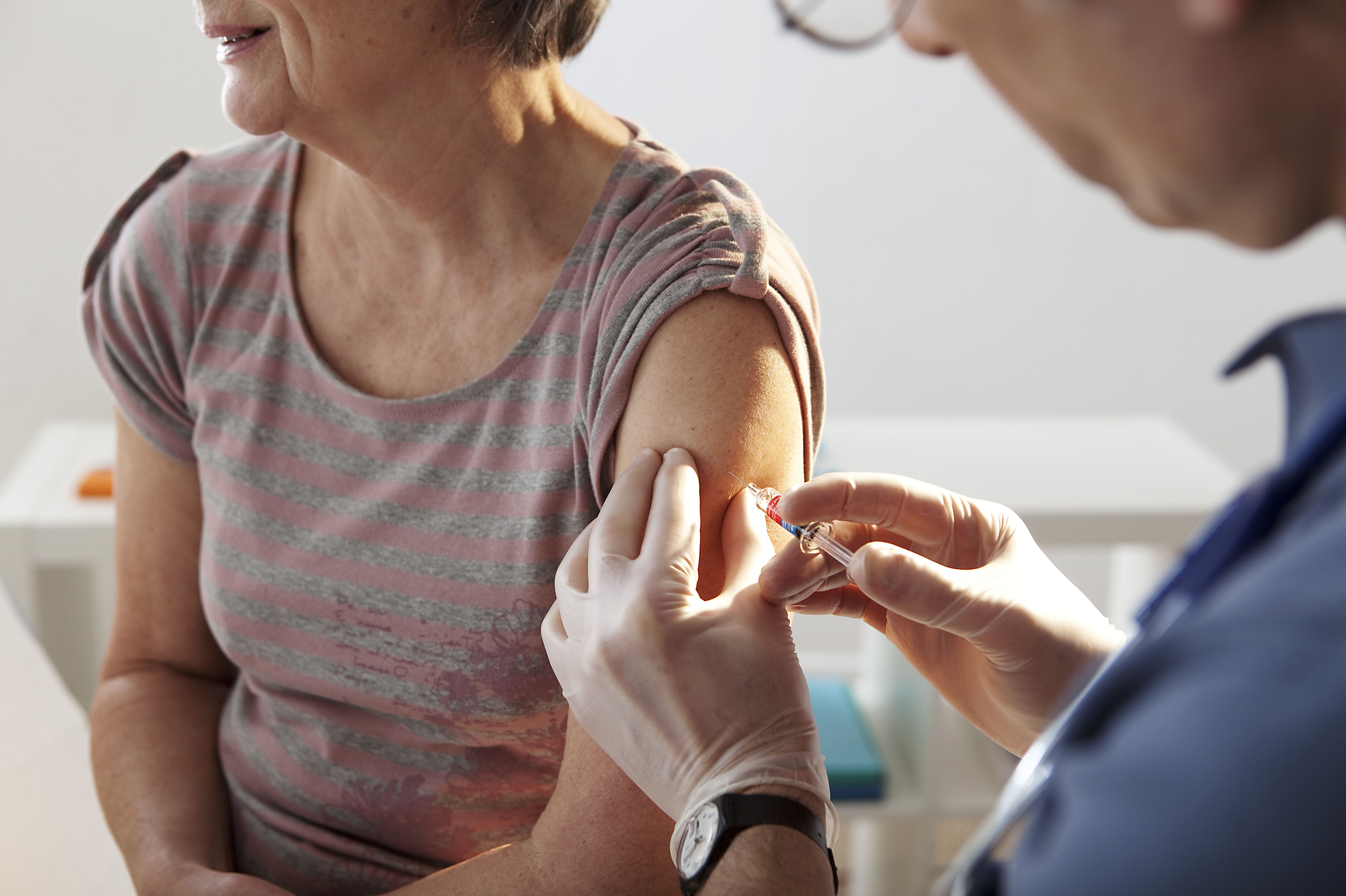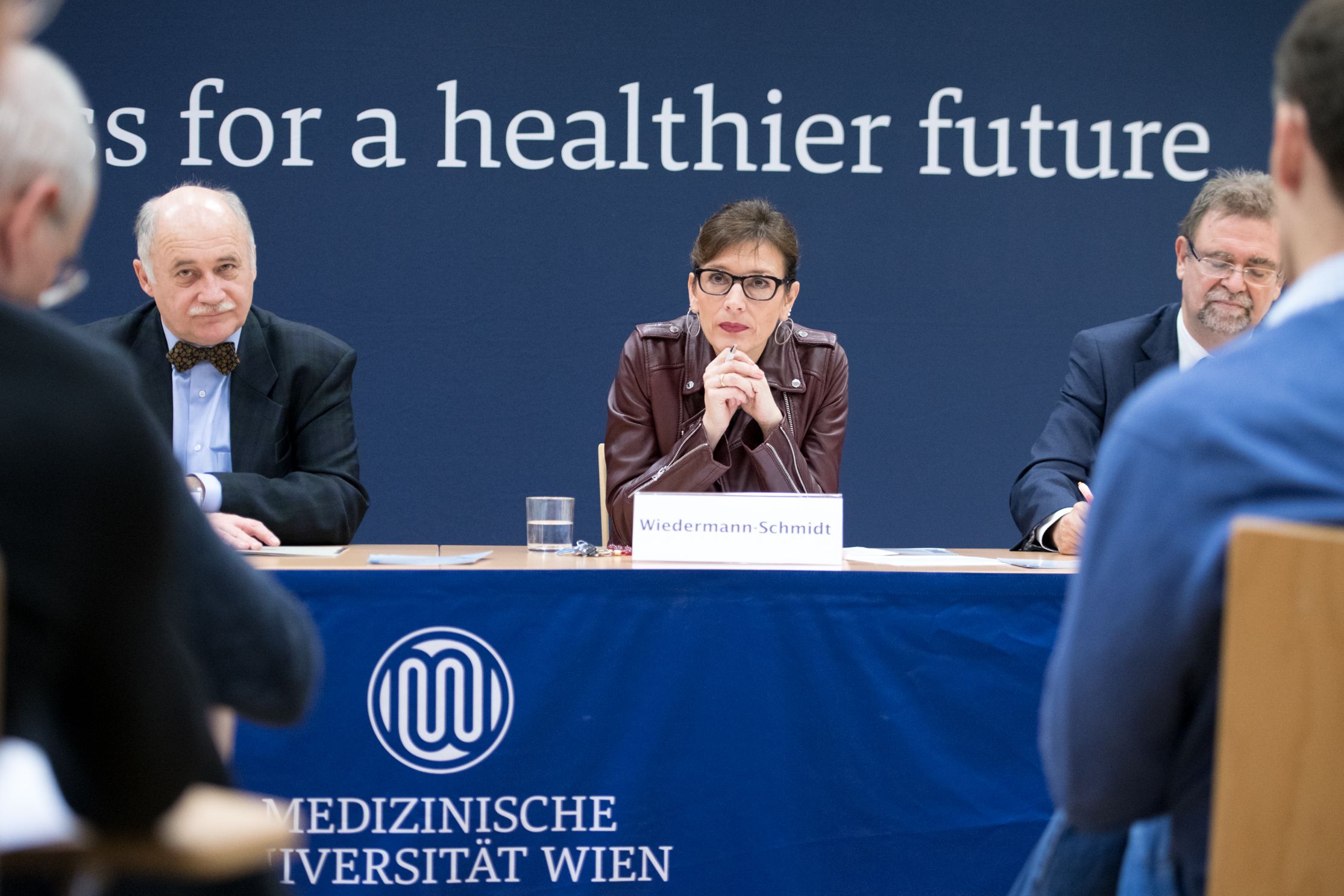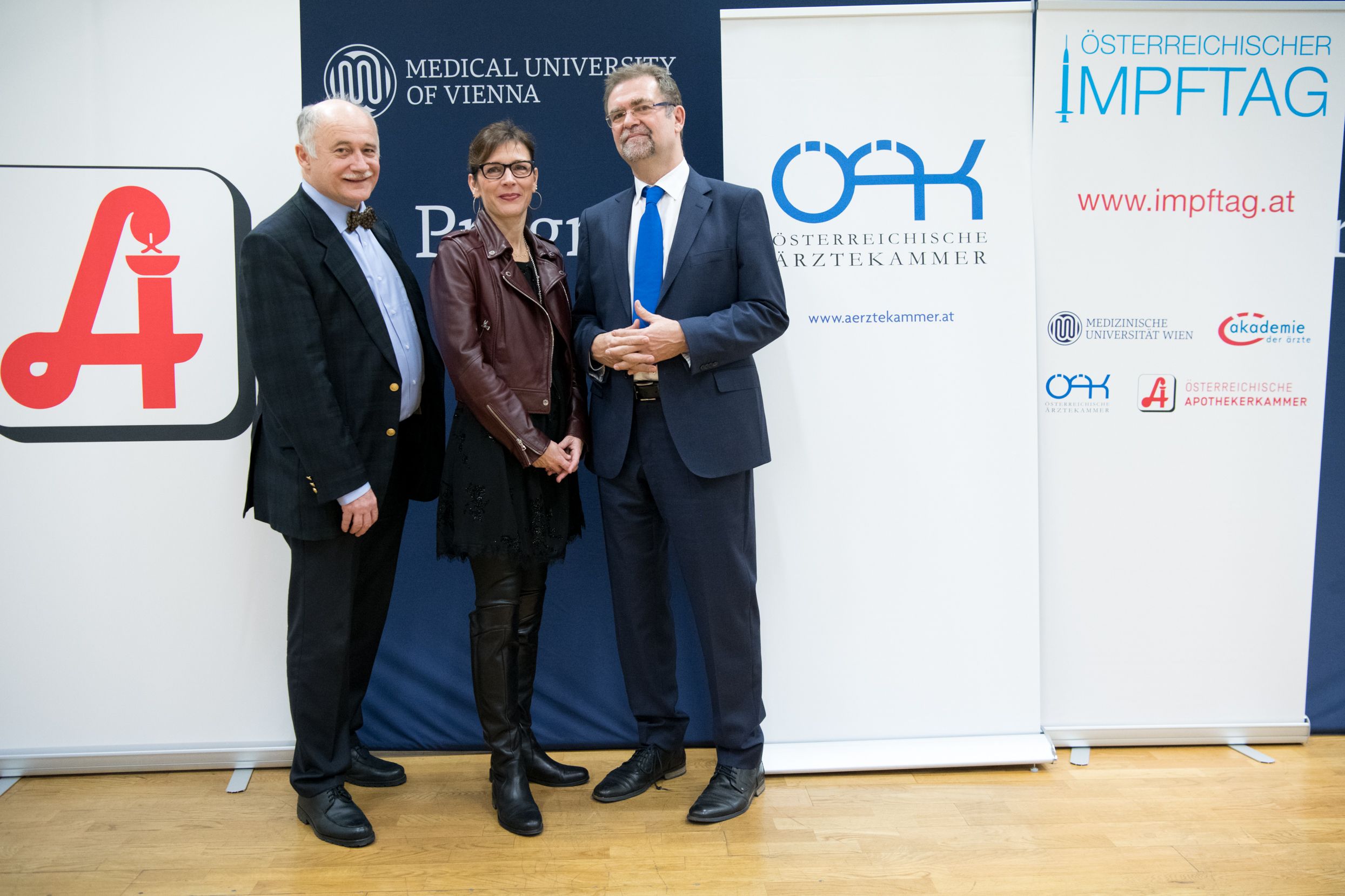
(Vienna, 12-12-2018) “Vaccination is needed at every stage in life, from infancy through to childhood and adolescence, and into pregnancy and old age.” This is something which is stressed by Ursula Wiedermann-Schmidt, director of the Institute for Specific Prophylaxis and tropical medicine at MedUni Vienna and scientific director of the Austrian Vaccination Day (Österreichischer Impftag) 2019 - which accordingly, is being held under the motto “Prevention through vaccination – from young to old.” And given the unwanted renaissance of serious infectious diseases such as measles, whooping cough (pertussis) or diphtheria, as well as many deaths associated with influenza, the experts from MedUni Vienna, the Austrian Medical Association (Österreichischer Ärztekammer) and the Austrian Chamber of Pharmacists (Österreichischer Apothekerkammer) once again demanded that vaccination must be ‘in’ at a press conference on Wednesday, and that inadequate protection through vaccination is considered a social problem.
As Wiedermann-Schmidt goes on to say, in order to achieve this, it is urgently necessary to oppose the “negative vaccination populism” through correct and effective communication strategies: “The message only gets through if we doctors, and all healthcare professionals have sufficient knowledge about vaccination and the right communication channels.” Therefore, we are making the immune system the focus of the plenary lecture in order to remind ourselves why certain diseases are particularly dangerous in certain age groups and why vaccinations are important in all age groups. "
She adds, “It is only with the right understanding that we ensure that each individual takes responsibility for all, so as to prevent and reduce infectious diseases and mortality rates”. According to the World Health Organization (WHO), there were more than 41,000 cases of measles in Europe in the first half of 2018 alone, with 37 fatalities. “Each of these victims could have been prevented with a vaccine.” It is easy for many people to misinterpret measles as a ‘childhood disease’ and therefore dismiss it as something ‘non-serious’ or generally reject vaccination as ‘unnatural’, out of ignorance.

From protection of the individual through to collective protection
The expert stresses that the transfer of knowledge about vaccinations must be done in childhood using the ‘right language’. “As such, the message, ‘Really cool: Cruising, Chilling, Vaccinating, not only deals with the fact that vaccinations are important in adolescence, but also the way in which we reach out to, and get this age group onboard, through the right language and images.”
A first step, according to Wiedermann-Schmidt, must be obligatory vaccinations for all people who work in health and social professions: “In 2017, measles affected nearly 20 percent of health workers in Austria – an untenable state of affairs.” Apart from self-protection and protection of the patient, doctors, nursing staff and pharmacists should act as a strong role model in order to motivate the population to be vaccinated. Only individual protection leads to collective protection. Wiedermann-Schmidt: “Unfortunately, we find that ‘egoism’ is the spirit of the age – also when carrying out vaccinations. Everyone just looks after themselves, as if he or she is not part of the social fabric. But it is only those who protect themselves and get vaccinated, who protect other people in their personal surroundings, and as such, prevent pockets of non-vaccination. This is understood as a social responsibility, which should be self-evident for everyone.”

Vaccination: The young protect the old
As Rudolf Schmitzberger, head of the vaccination council at the Austrian Medical Association (ÖÄK) states, “The measles problem is undoubtedly dramatic, but must not distract from other diseases which are preventable as a result of vaccinations.” For example, the number of whooping cough cases has more than doubled between 2015 and 2017. “The disease is spreading almost as fast as measles. The symptoms in children and adults are often correctly interpreted at a late statge. Sufficient protection through vaccination is therefore particularly important for sensitive groups such as pregnant women. "
Two-thirds of two-to-three-year-olds also carry pneumococcal bacteria unnoticed and as such, these bacteria pose a potential threat to their lives. As Schmitzberger goes on to state, “Against pneumococci, there is now a broader 13-fold vaccine that has been adopted by more than 100 countries. Our free child vaccine programme should also switch to this vaccine from the current 10-fold vaccine.” Influenza is also largely transmitted by children, so the vaccine should be urgently included in the vaccination programme. His conclusion: “The young protect the old: If the grandchildren are vaccinated, they not only protect themselves from illness, but also parents and grandparents”.
Pharmacies as important centres for advice
As Gerhard Kobinger, presidial Member of the Austrian Chamber of Pharmacists, stresses, “Austrian pharmacists play a particularly important role in the field of vaccination: That of counseling in the sense of prevention. With over 400,000 patient and customer contacts per day, local pharmacies are the first port of call for the population when it comes to health. On the one hand, for the pharmacists, this means immense responsibility. On the other hand, it is a great opportunity to positively influence health awareness among people. This is especially true in the case of vaccination, a topic that is discussed with a lot of controversy and where there is a great uncertainty among the public, as a result of information deficits.” Kobinger adds: Incidentally, boosting competency in health among the population, in a sustainable way, is a duty that falls upon the Austrian Chamber of Pharmacists. This can also be found in the current government programme.
Austrian Vaccination Day 2019
Saturday, 19 January 2019, “Prevention through vaccination – from young to old.” (Austria Center Vienna, Bruno-Kreisky-Platz 1, 1220 Vienna, 8:00-17:00). The Austrian Vaccination Day is the largest event in the field of vaccination for physicians and pharmacists in Austria and is organised by the Austrian Academy of Physicians (Österreichische Akademie der Ärzte GmbH) in cooperation with MedUni Vienna, the Austrian Medical Association (Österreichischer Ärztekammer) and the Austrian Chamber of Pharmacists (Österreichischer Apothekerkammer). All information and registration details can be found at: www.impftag.at